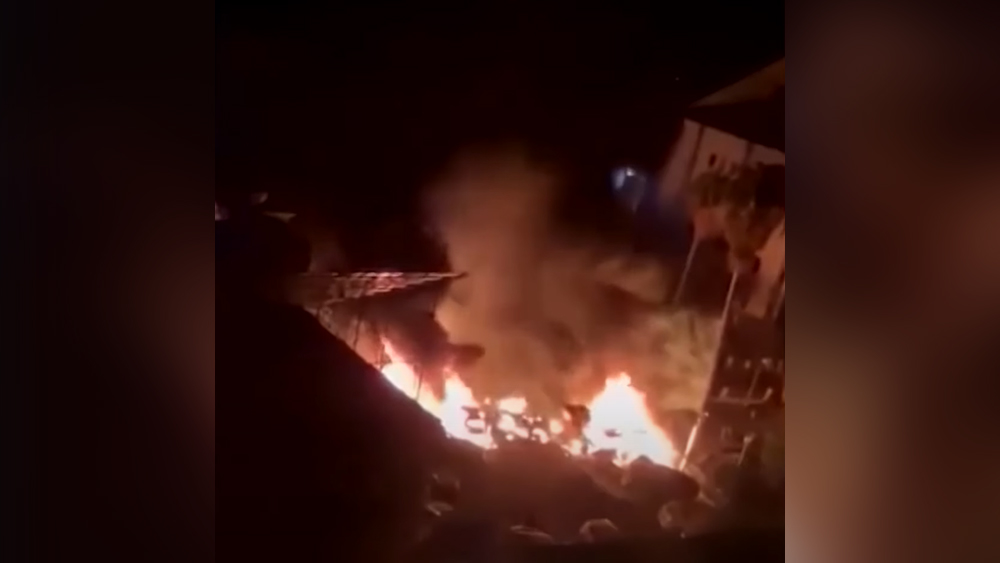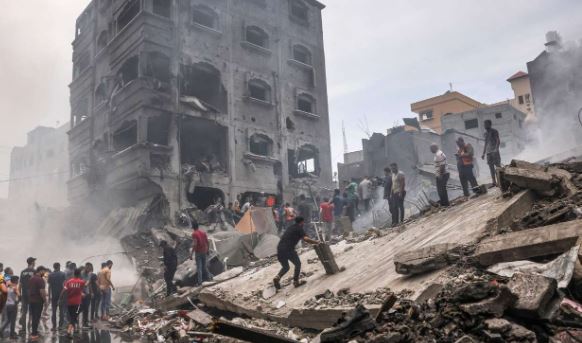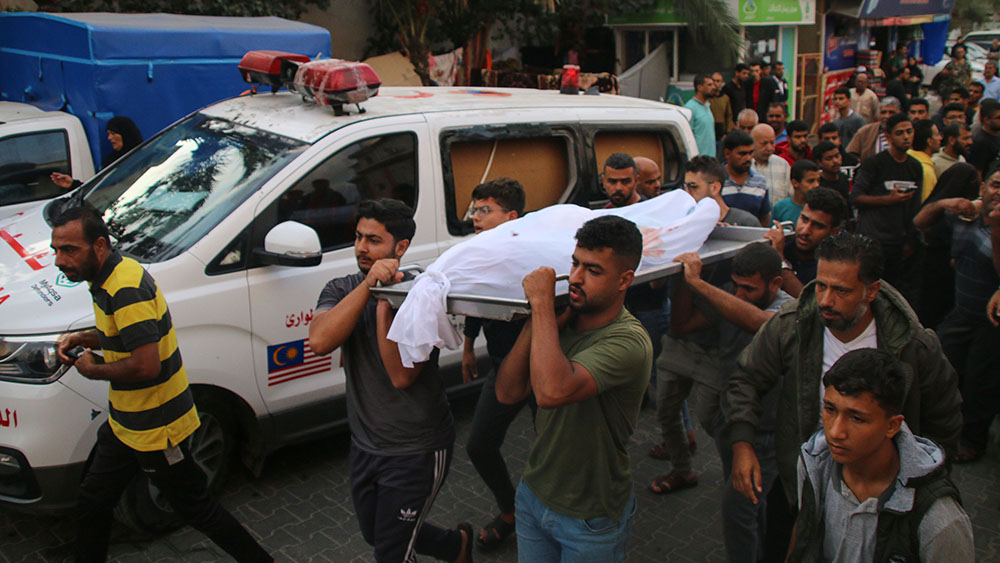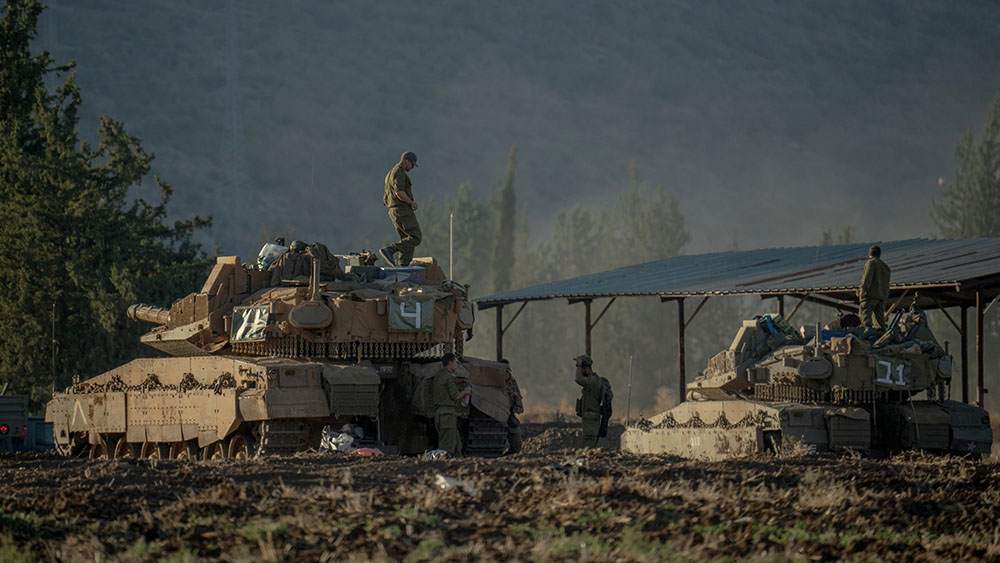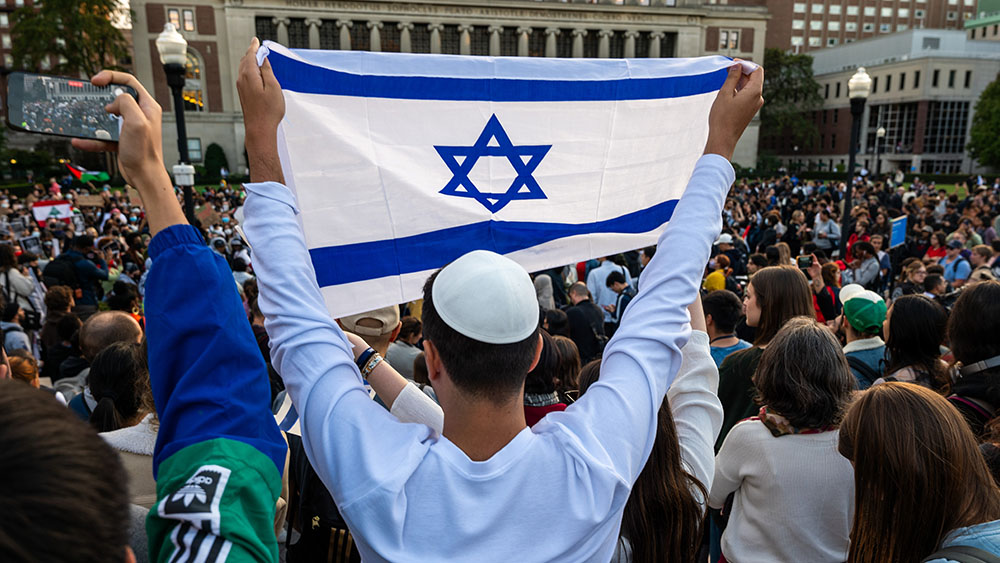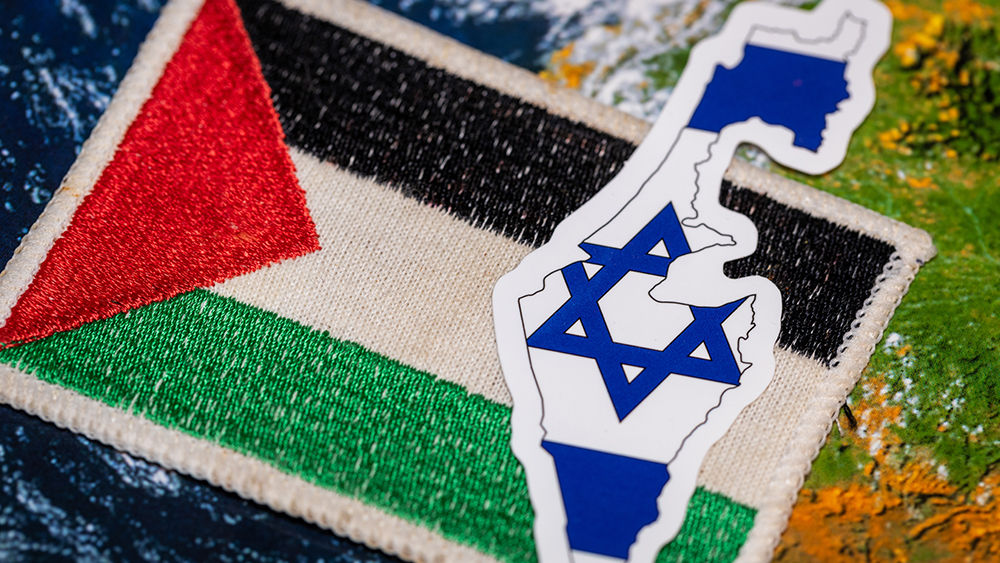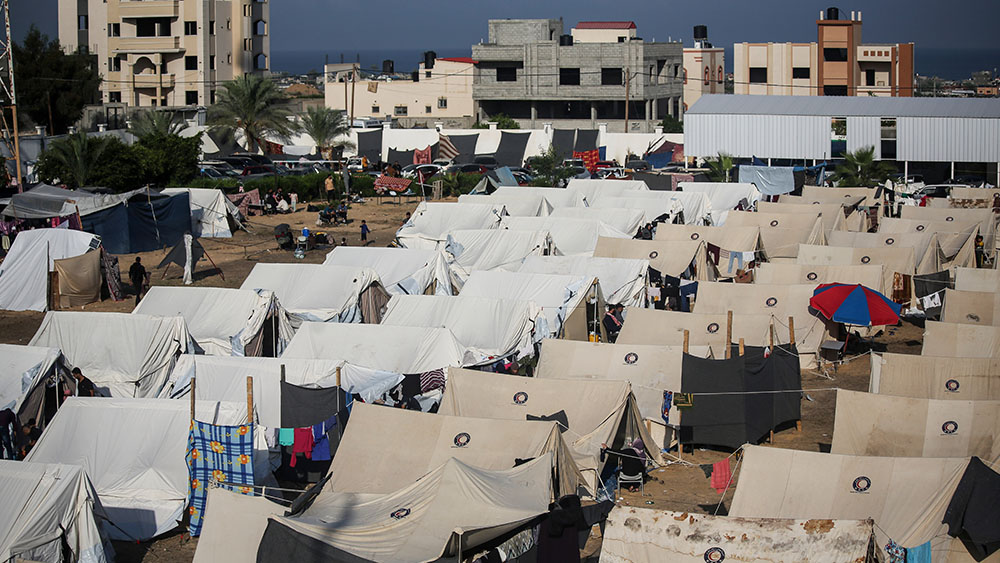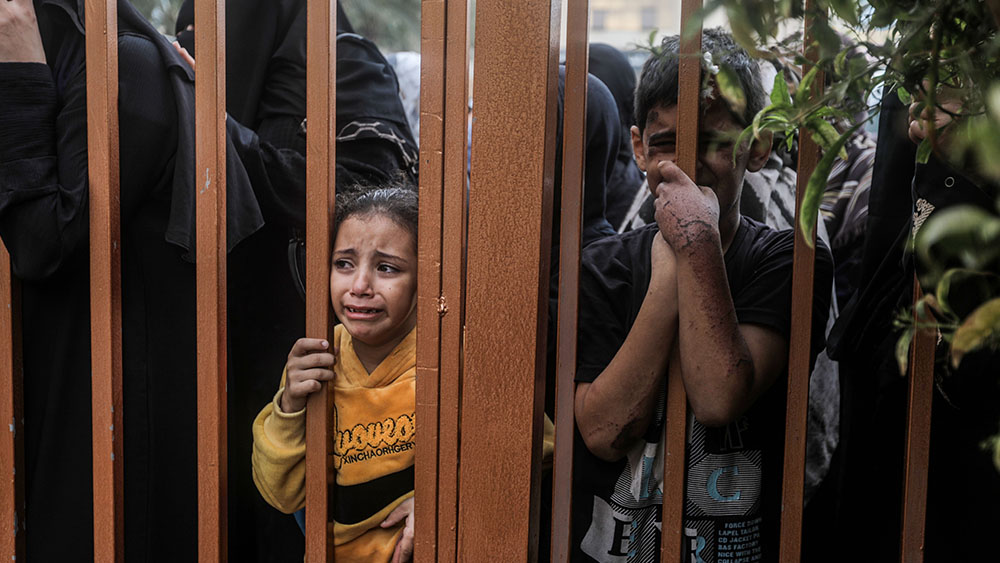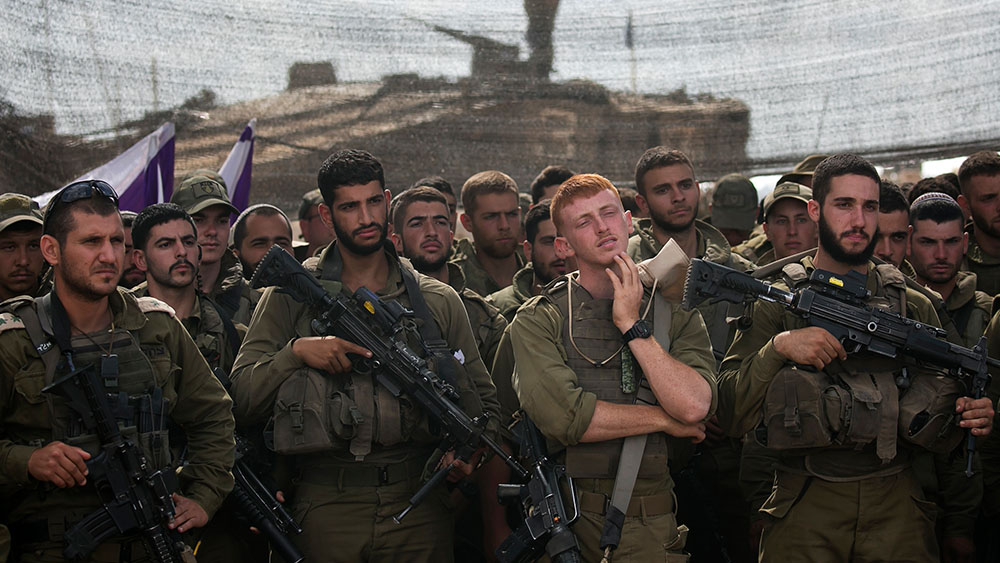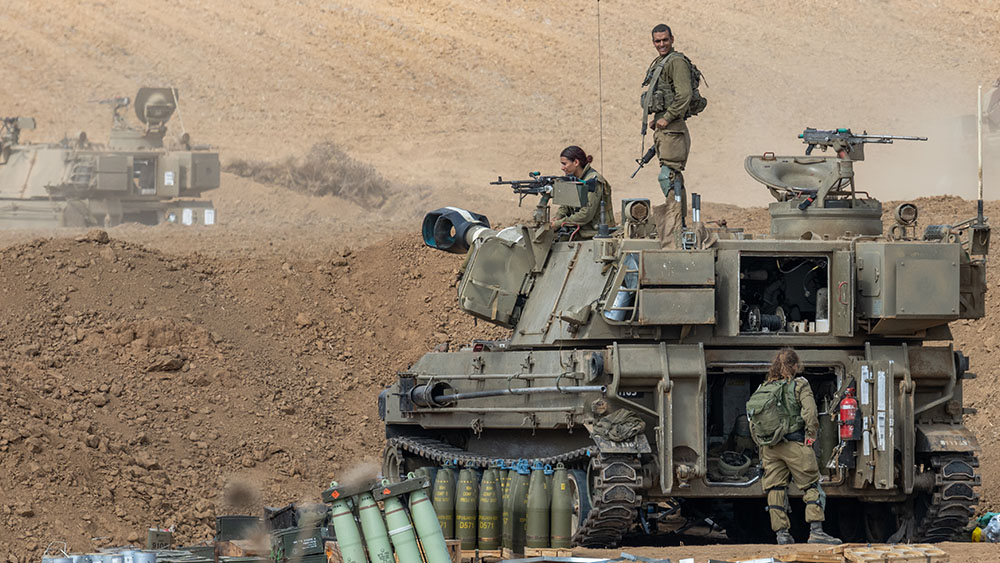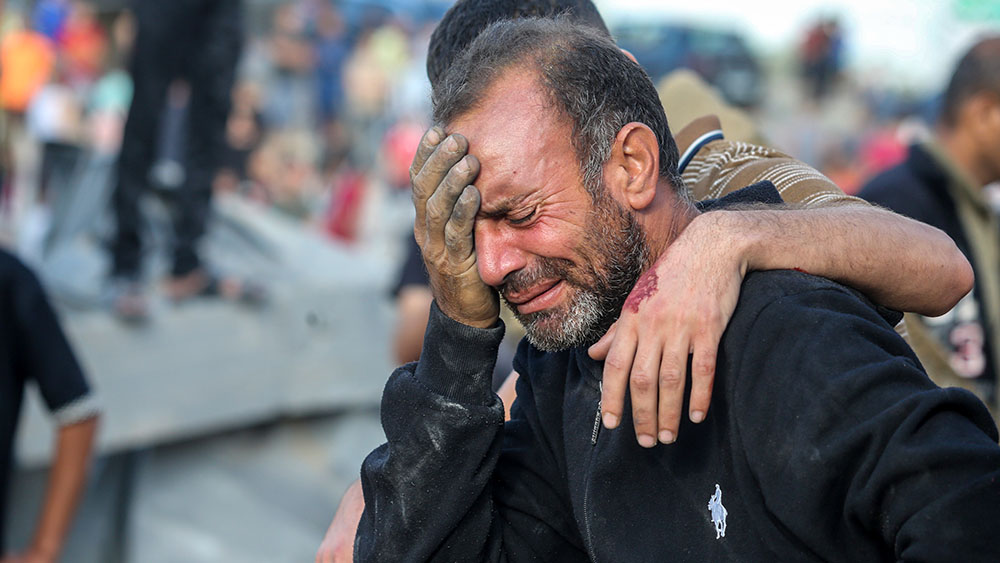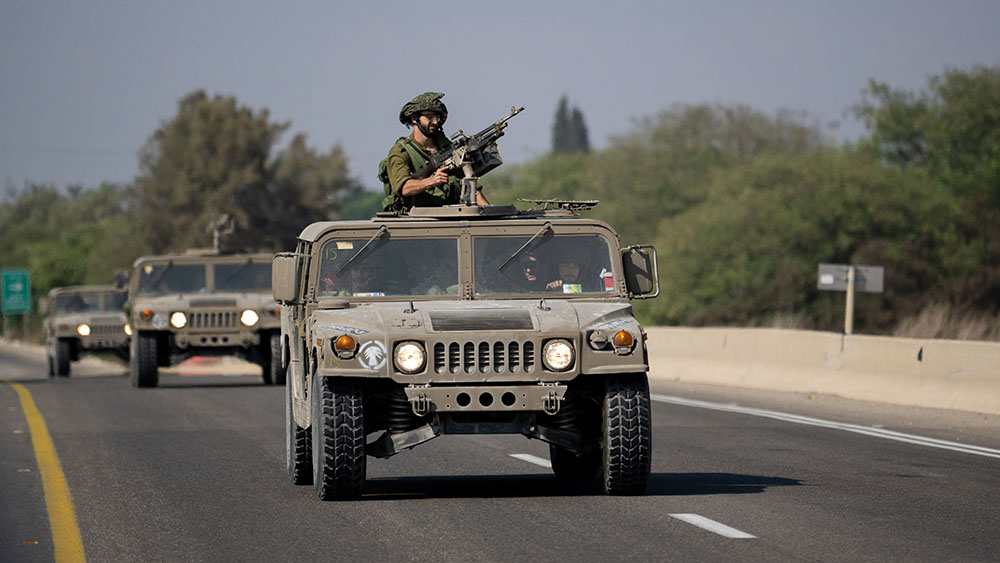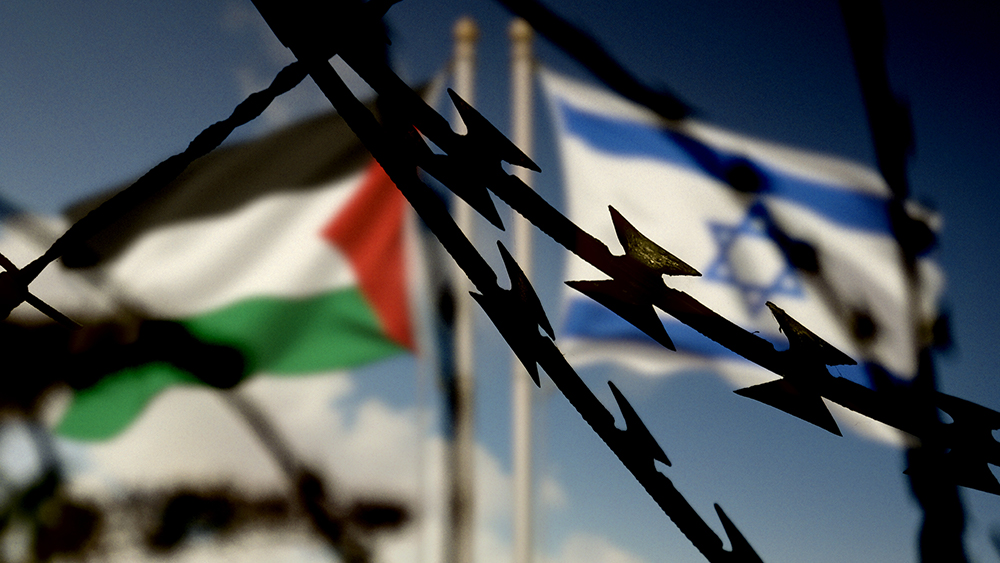REPORT: Israeli airstrikes in southern Lebanon kill six medics, frustrating potential ceasefire talks
11/05/2024 / By Laura Harris
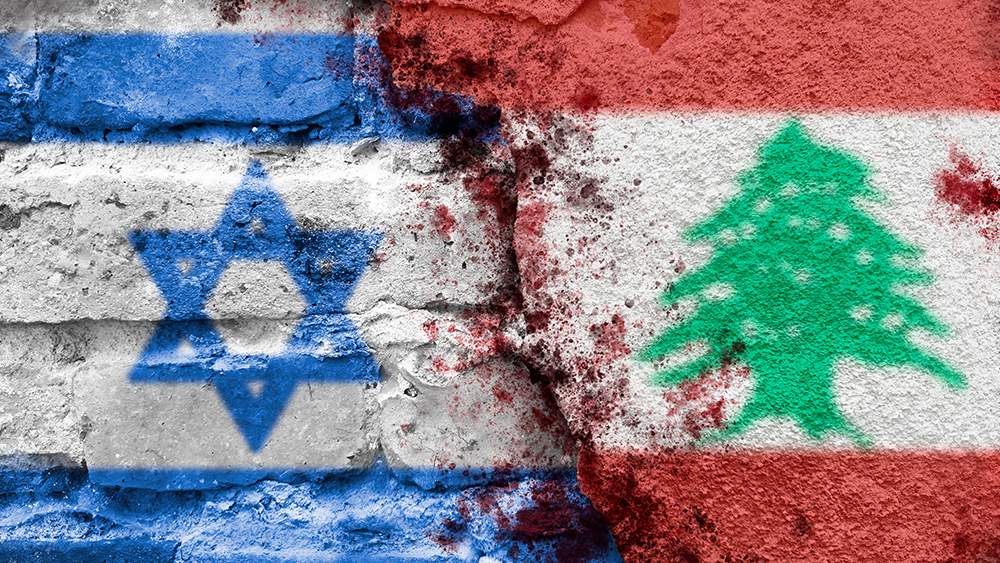
The Lebanese Ministry of Public Health has reported the deaths of six health workers in Israeli airstrikes as American envoys and Israeli officials meet in Israel to discuss a potential ceasefire deal.
On Oct. 31, United States National Security Council Coordinator for the Middle East and North Africa Brett McGurk along with U.S. envoy Amos Hochstein in Israel to broker a potential ceasefire deal between Israel and Hezbollah. Their visit followed days of diplomatic maneuvering to secure a temporary pause in hostilities, particularly in southern Lebanon.
The talks reportedly focused on implementing United Nations Security Council Resolution 1701, which would require Hezbollah to retreat 30 kilometers (18.6 miles) from the Israel-Lebanon border, north of the Litani River. In this scenario, Israeli forces would withdraw from Lebanon, and the Lebanese army, along with UN peacekeepers, would assume control of the border, with Lebanon tasked with preventing Hezbollah from rearming and returning to their former zones of influence. (Related: Israeli strike on Syria kills 25, hits military research center.)
As the security officials of both countries discussed a potential ceasefire deal, Israel ordered the forced evacuation of several areas in Baalbek in southern Lebanon.
According to a report from Lebanon’s National News Agency, Israeli aircraft, which also wounded four other health personnel, launched four strikes targeting the village of Douris and areas surrounding Baalbek on Oct. 31. Health officials say four medics lost their lives when an attack struck a gathering point for civil defense teams and two more were killed in separate incidents.
These deaths have brought the total number of health workers killed in Israeli strikes over the past year to 178, with 279 more injured.
Lebanese PM accuses Israel of “war crimes”
Just a day before the ceasefire talk and airstrike, Lebanese Prime Minister Najib Mikati expressed hope for a ceasefire within “the coming hours or days.” Meanwhile, Hezbollah’s new leader, Naim Qassem, stated the group would accept a truce under specific conditions.
But not long before the ceasefire discussions, Mikati had already condemned Israel’s recent evacuation orders against Lebanese residents as a “war crime.”
“The threat issued by the Israeli enemy against Lebanese civilians to evacuate entire cities and displace them from their areas and homes is an additional war crime, added to the series of crimes committed by the Israeli enemy, including killing, destruction and sabotage,” Mikati said in a press briefing.
In turn, Mikati urged the increased political pressure to halt what he describes as “Israeli aggression.” Mikati also engaged in discussions with U.S. Ambassador Lisa Johnson and Egyptian envoy Alaa Moussa to serve as a resolution to the ongoing conflict.
Despite these diplomatic efforts, Al Jazeera‘s Dorsa Jabbari, reporting from Beirut, indicated that Mikati’s remarks complicate the prospect of reaching an agreement soon.
Jabbari noted: “He believes these continuing Israeli escalations do not inspire optimism.” This point of contention has become a major hurdle in discussions, as the Israeli military has maintained that negotiations would proceed “under fire,” a condition unacceptable to both the Lebanese government and Hezbollah.
The latest stories about the escalating situation in the Middle East can be found at WWIII.news.
Watch this video from “Southfront Press” discussing Israel’s escalation of the conflict with its new air strikes against Syria.
This video is from the channel The Prisoner on Brighteon.com.
More related stories:
Israeli strike on UN-run school that housed displaced families in Nuseirat kills 23 Palestinians.
Israeli strike on UN school in central Gaza kills at least 40 people, most of them children.
Israeli strikes target emergency health centers in southern Lebanon, killing paramedics.
U.S. on high alert as Iran’s proxies threaten retaliation following Israeli strikes.
Sources include:
Submit a correction >>
Tagged Under:
big government, ceasefire, ceasefire negotiations, chaos, Hezbollah, invasion of Lebanon, Israel, Israel-Hezbollah conflict, Lebanon, Najib Mikati, UN Peacekeepers, United Nations, WWIII
This article may contain statements that reflect the opinion of the author
RECENT NEWS & ARTICLES
COPYRIGHT © 2017 HUMANITARIAN NEWS

